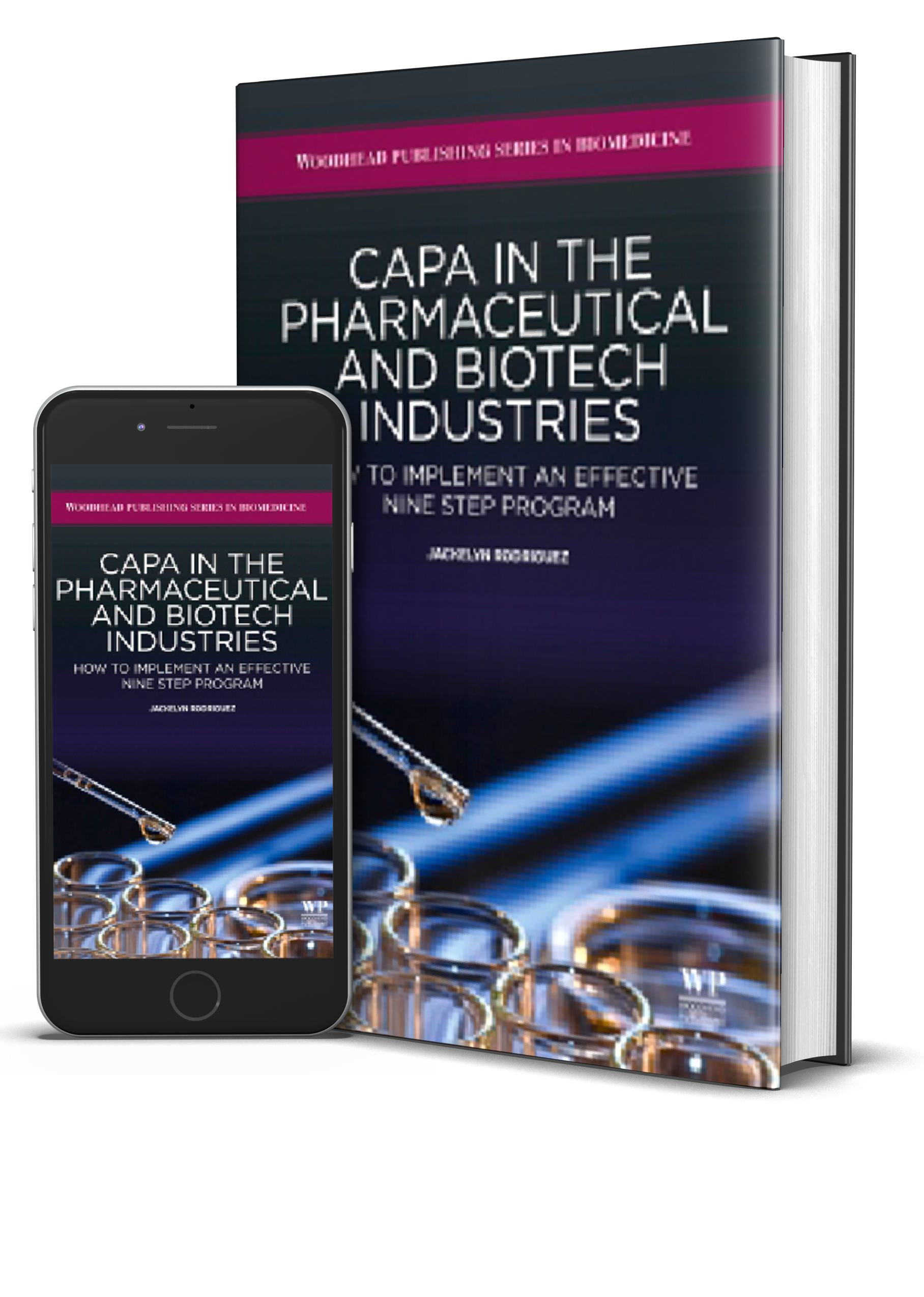
Best Practices for an Effective Quality Assurance Auditing for FDA Regulated Industries & ISO13485 -MEDSAP
![]() Course Director: Jackelyn Rodriguez
Course Director: Jackelyn Rodriguez
![]() Course Cost |
Course Cost | ![]() Course Location |
Course Location | ![]() Course Date
Course Date
October 16-17, 2017
Doubletree by Hilton Cariari San Jose-Costa Rica
San Antonio de Belén, Ciudad Cariari
www.CariariSanJose.DoubleTree.com
$1250.00 Regular Registration
![]() Aditional Course List: Click here
Aditional Course List: Click here
Course Description
The need for quality assurance auditing has been recognized, and is required, by every active pharmaceutical ingredient (API)/bulk pharmaceutical chemical, medical device and finished pharmaceutical CGMP regulation published worldwide. Quality Assurance Auditing is a corner stone of ISO Standards-required Quality Systems, without which compliance to quality standards is impossible.
Experience reveals that many internal company audits and many external supplier/contractor audit programs are ineffective.
This course provides the rationale, strategies, techniques and tips, on how to plan and perform effective quality assurance audits. The course explores the politics, psychology and all the technical aspects of auditing, including discussions of their logistics, tools, and frequency. The course evaluates the talents and personnel characteristics required of a good auditor and those required of an excellent auditor.
Determining operational deficiencies is only one aspect of an audit. The key issue is how to effect change to bring about compliance to company and legal standards. This course considers how to effect change and how to make audits a positive experience for the auditor and auditee.
Who Should Attend
This two-day course is designed for quality managers, auditors, regulatory/compliance professionals, production managers and top management interested in learning the value of a "good audit" to the company, how to prepare for a "good audit", and how to enhance QA Auditing as a valuable quality assurance and regulatory compliance tool.
This course is designed so that you will:
Anticipate and prevent potential problems and weaknesses Implement proven best practices to minimize deficiencies Identify trends in FDA findings and current FDA concerns Determine how to spot trigger points and deviations Identify and evaluate various audit tools Know what is involved with an effective quality assurance audit, and how to plan for its successful implementation Understancd the types of audits which are conducted, why they are necessary and the value they provide Learn how to prepare for, perform, close-out and follow-up audits and how to get the best out of audits Tie audits to corrective and preventive action (CAPA) programs Be able to "sell" management on implementing effective internal audits and supplier/contractor audits
COURSE AGENDA
FIRST DAY
Overview and general considerations: The name of the game is effecting change. Determining operational deficiencies is only one aspect of an audit. The key issue is how to effect change to bring about compliance to company and legal standards. This course considers how to effect change and how to make audits a positive experience for the auditor and for the auditee.
- The hidden costs of quality
- The costs of product and process failure
- The purpose of Quality Assurance/Regulatory Compliance Audits (QAA)
- The role of QAA in healthcare-manufacturing and quality control operations in the 2000s
- Interactions between QA and purchasing, product development, production, engineering, and quality control
- The QA function and its reporting relationship within the organization
- Understanding the politics of auditing.
Types of audits:
Audit Programs
- Internal facility audits
- Product, process, procedural and system audits
- External Audits
- Supplier/contract manufacturer audits
- Team audits
- Similarities and differences in audit types
- Being audited
- Customer audits
- Regulatory agency audits
Audit standards
- Auditing to U.S. drug (21CFR Part 210/211) and device (21CFR Part 820) good manufacturing practices and the QSR Auditing to European Union directives
- Auditing to ISO Standards Similarities and differences in expectations and standard
- Audit mechanics Preparation, Performance & Conclusion The importance of documentation
- Audit reports and audit follow-up
- Effecting change The pluses and minuses of "surprise audit
- "How to" and "how not to" perform audits
- Strategies and techniques to maximize audit effectiveness
- Listening & observation skills
Audit reports
- Forms design
- Advantages and disadvantages of audit checklists
- Grading lists
- Open-ended report format
Contractor and supplier audits
- Budgets and scheduling of supplier audits
- Design and process defects
- Steps for conducting supplier audits
- New audits and problem resolution audits (the differences between these audits and how to maximize the benefits and gain competitive advantage for our companies)
- Options for winning compliance
What makes a good audit?
- Audit objectivity
- Auditing standards
- Auditor qualifications; auditor training
- Creating a win-win audit - turning the audit into a positive coaching experience for yourself, your company, and those you are auditing
Selling Quality Assurance audits to management
- Learn why top management should care about audit findings
- Discover how to get management to listen, buy-in, and take action on your audit findings
Questions & Wrap-Up When delivered as an in-house program, this course is fully customizable to meet the specific needs of an organization, department or employees functional responsibility.
For more information, click HERE
All of course can be delivered on-site and can be fully customizable
* Before registering for any of our courses, read our registration policies and procedures.


